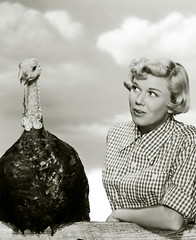Alec Baldwin
Who?
Who?
Probably the most famous member of the Baldwin family, Alec Baldwin is an American actor who first found fame as a star of the soap opera “Knots Landing”. Since then he has starred in a number of feature films and won several awards. He was also lampooned in the film “Team America” as the leader of the fictional “Film Actors Guild”, a group of actors with extremely liberal politics.















